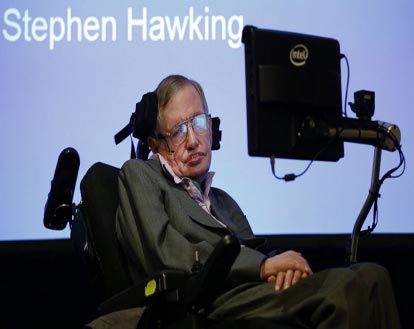Stephen Hawking, a 72-year-old former professor from Cambridge University, has just received a new upgrade to his computer speech system from engineers at Intel.

Hawking relies on computer technology to speak since he suffers from motor neuron disease and is almost fully paralyzed. Currently, he uses a cheek sensor that is synced to his eye glasses that allows him to choose what he wants to type. This text is then processed through his speech synthesizer and then spoken out loud through his laptop. This process has now been simplified with a new software upgrade.
Intel has incorporated SwiftKey’s predictive text technology into Hawkins’ speech system software.
“The software knows Hawking’s communication patterns, meaning he has to type less than 20 percent of all characters to convey what he wants to say,” according to Intel. This upgrade will increase the speed of the process by 10 times and allow Hawking to type faster, browse the internet easier and switch between programs simpler.
“Intel has been supporting me for almost 20 years, allowing me to do what I love every day. The development of this system has the potential to improve the lives of disabled people around the world and is leading the way in terms of human interaction and the ability to overcome communication boundaries that once stood in the way,” Hawking said.
“The technology Hawking is using will be made available for free in January, allowing researchers and technologists to build on the software and tailor it in different ways that could help the more than 3 million people worldwide who have motor neuron disease or quadriplegia better communicate,” Intel said.





